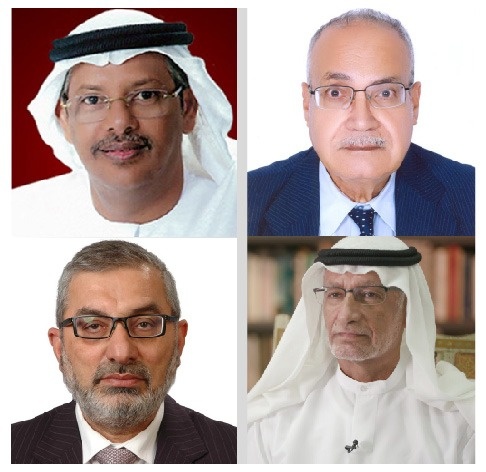The September 11, 2001, terrorist attacks were covered by the media from one narrow-angle: the United States suffered terrorist attacks launched by Al-Qaeda, which targeted important sites in Washington and New York. Two decades later, however, the views regarding the attacks have acquired wider perspective and the event became clearer.
According to American journalist Steve Cole, in his book “Ghost Wars”: “It is easier for the present-day researcher to explain how and why those attacks occurred than to delve deeper into their repercussions. Following the attacks, Washington believed that it could reshape the world according to its expectations, but only succeeded in showing the world its ugly face”.
The virtual symposium, organized by the International Network for Arab Societies Study (INASS) and the Arab Renaissance for Democracy and Development (ARDD), discussed the changes that occurred after September 11 in the Arab world, as its title indicates. It is part of the International Forum “Transformations” series.
Taking part in the symposium was Egyptian philosopher and thinker Dr. Hassan Hanafi director of the Mosul Center for Strategic and Future Studies, Dr. Hassan Muzaffar Al-Rezzo, from Iraq, and professor of international relations and political economy, Dr. Al-Bader Al-Shatry, and professor of political science, Dr. Abdul-Khaleq Abdullah, from the United Arab Emirates.
It was moderated by Lebanese journalist Fadi Shahwan and had as a goal setting the basis for a scientific discussion among specialists with a view to better understand, analyze and interpret the September 11 attacks and their aftermath, and which, it is hoped, will contribute to countering Western intellectual, economic and political schemes targeting the Arab world.
“It can be said that the attacks of September 11 worsened the stereotypical image of Arabs and Muslims in the West, which was unflattering even before those events,” said Al-Shatry, stressing that what happened was a Western pretext to accuse Arabs and Islam of barbarism and terrorism.
“Instead of pondering the economic or social causes of the phenomenon of terrorism, those who are familiar with the Arab world have accused religion of inciting to terrorism, even though they know that Islam, with its different sects, embraces diversity. . The attacks gave America the opportunity to replace the communist threat with the Islamic threat,” added Al-Shatry.
According to Hanafi, the West’s stereotype of the Arabs after the September 11 attacks did not differ much from the image it had about them long before the September 11 events.
He said that oppressors tend to accuse the oppressed of violence, hoping to blur the distinction between victim and perpetrator, a strategy that Britain, for example, used with the Indians who fought to be free from British colonialism.
Hanafi emphasized that the Arabs did not perform violence, they only fought for liberation, in pre-Islamic times, from Roman colonialism, and fighting for freedom in Algeria, Egypt, Yemen, and other countries.
Al-Rezzo reviewed the new American strategy for dealing with the event and its crafting of the culture of war on terrorism, saying: “The threat of terrorism to countries and societies is not new, but declaring war on terrorism, mobilizing armies, invading countries and violating international conventions occurred for the first time after the events of September 11.”
Red Cross articles dealing with a confrontation between armed government forces and armed groups in any country say they should be limited to the minimum and have a minimum impact on both sides; they also consider such armed confrontations criminal acts.
Therefore, the United States’ waging a “war on terror” should not entail huge, brute military force.
Abdullah said the September 11 attacks resulted in a divided Arab region and a more violent world. He said “Our relationship with the other has gone from bad to worse, as bridges between Islamic civilization and Western civilization were destroyed, and the civilizational gap and media, cultural and military exchanges between Islam and the West have increased; all of this proves the need for different Arab thinking and changes since the Arab world lacks democracy and is ruled with iron fists.
The September 11 attacks had long-term effects on the world, and led to clearly visible changes regarding major issues, in addition to geopolitical and demographic changes, and deepened the pit of backwardness and division into which the Arab world has slipped since then.


